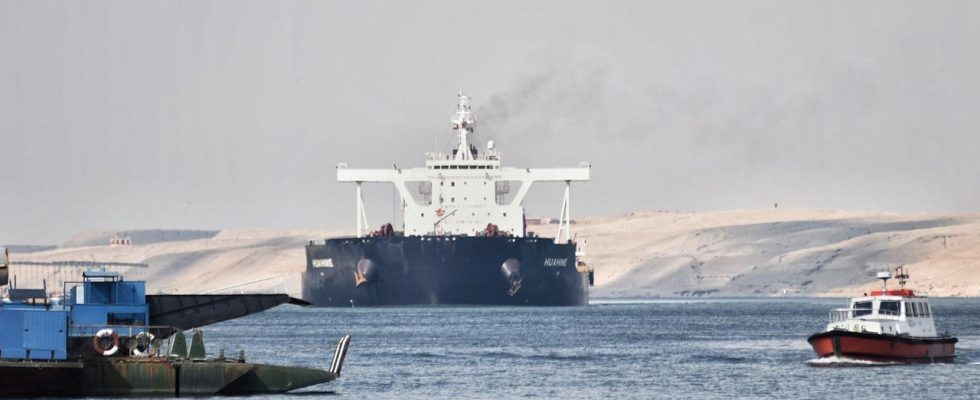faq
The EU’s planned military deployment in the Red Sea concerns foreign ministers for the first time at a meeting in Brussels. The goal: to secure merchant ships against attacks by the Houthi militia in Yemen. What is planned?
What is it about?
Shipping in the Red Sea has partially come to a standstill. The reason is attacks by the Iran-backed Houthi militia in Yemen. They have attacked a number of merchant ships in the Red Sea with missiles and drones since the beginning of October. The militia sees itself as part of the “Axis of Resistance” in the Middle East war directed against Israel. Warships from an international coalition led by the US have been trying to secure the route along the Yemeni coast since December.
What is the EU planning?
According to diplomats, representatives of EU countries gave the fundamental green light for their own naval mission this week. Three warships are being discussed, along with accompanying aircraft such as helicopters and drones. They are supposed to escort merchant ships in the Red Sea. This should act independently of the international coalition because countries like France do not want to place their forces under US command.
How is Germany participating?
The federal government could send the German frigate “Hessen”, but has not yet officially confirmed this. The “Hessen” was most recently deployed for NATO in the North Atlantic and the Arctic. It has a crew of 245 soldiers.
Who else is there?
Belgium and the Netherlands could also send warships, media reports. In addition, France and Italy have generally signaled support. According to EU information, Norway is also expected to participate. Spain, on the other hand, has announced that it does not want to take part in the EU mission. The reason for the veto was a dispute within the Spanish government coalition. Spain’s Defense Minister Margarita Robles recently said that Spanish participation in an EU mission there was “currently” ruled out. Your country is already involved in 17 peace missions worldwide.
Are attacks on the Houthis planned?
No, the mission should be purely defensive, as they say in Brussels and Berlin. A spokesman for the Foreign Office in Berlin made it clear that “striking Houthi positions on land” was not part of the plans. The USA and Great Britain have been attacking the Houthi militia from the air since last week. According to the EU, there are also no plans to intercept rockets that could be aimed directly at Israel.
What else is known about the mandate?
According to diplomats, the EU is initially planning a one-year mandate. It is still unclear whether a completely new naval mission will be launched. In this case, the Bundestag would have to agree to German participation.
What would be the alternative?
The EU could also expand the existing Agenor naval surveillance mission in the Strait of Hormuz, according to Brussels diplomats. The French-led mission has been securing merchant ships against Iranian attacks since 2020. It is supported by Germany and eight other European countries.
When will the EU decide on the mission?
Federal Foreign Minister Annalena Baerbock (Greens) recently said that the EU was working “hard” on the plans. However, no decision is expected on Monday in Brussels as the details are not ready for decision. Diplomats expect the vote at the next meeting of foreign ministers on February 19th at the latest. That would be more than four months after the Houthi attacks began. It’s not just Berlin that’s pushing for haste.
Anna Osius, ARD Cairo, tagesschau, January 21, 2024 6:42 a.m

